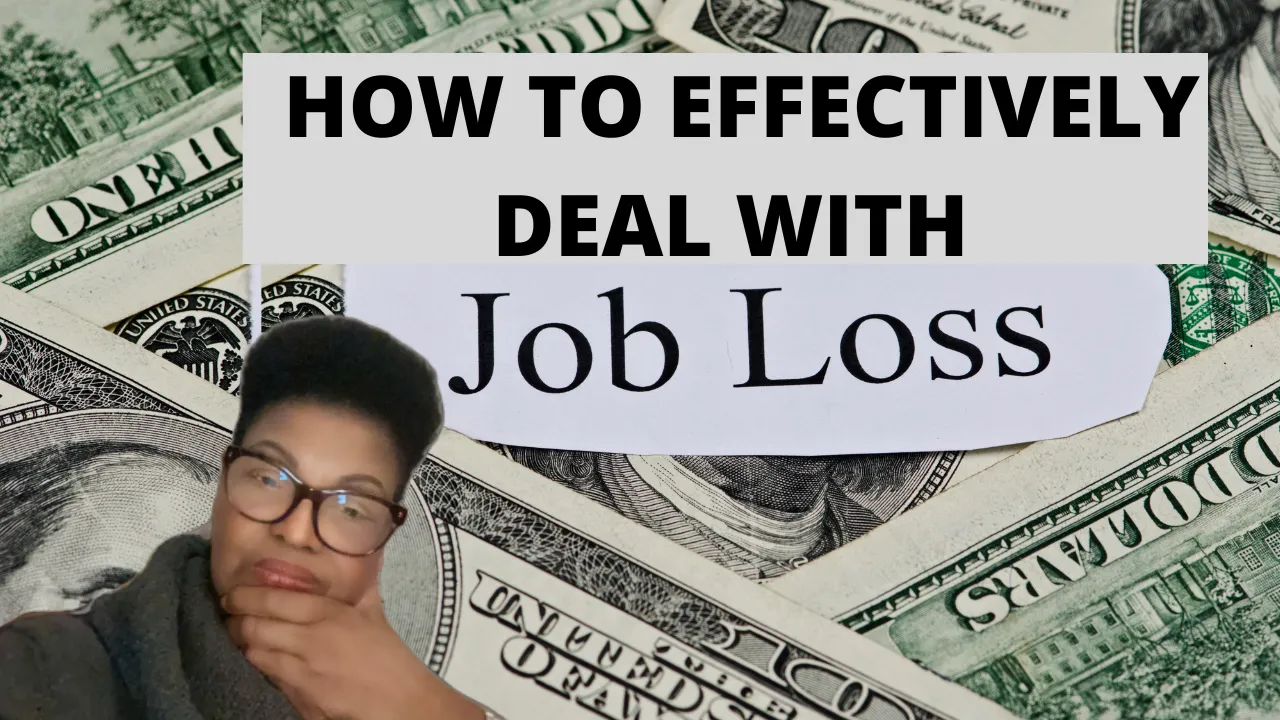HOW TO EFFECTIVELY HANDLE JOB LOSS

You may encounter grief when you find out that you have been laid off.
A job loss separation letter is always written on the employers’ terms, not the employees.
The 5 stages of grief developed by psychiatrist Elisabeth Kübler-Ross suggests that we go through five distinct stages after the loss.
These stages are denial, anger, bargaining, depression, and acceptance
Stage 1 - Denial
We go through the emotional pain, and we tell ourselves that it cannot be happening to us. It’s overwhelming because we think back and review and analyze all the values we added to the organization, and we are in disbelief.
Stage 2 – Anger
This is the stage where we are trying to adjust to the new reality and are likely experiencing extreme emotional discomfort. We start blaming the company, our colleagues, and the system
Stage 3 – Bargaining
This is the stage where some people will want to bargain. They will do anything to alleviate the pain of job loss.
You may recall situations you said things that in retrospect you could have behaved differently.
This is a stage of awareness where we realize that the things that happen are beyond our control to make a change.
If you can get over this stage, you will not move to the next stage of depression
Stage 4 – Depression
This is a natural stage, but we may become sad and start withdrawing, becoming less sociable, and reaching out less to others.
If you experience this stage, try not to stay there because when we lose our jobs, this is not the time to withdraw. It is the time to get out there and network
Stage 5 – Acceptance
At this stage we no longer feel the pain. We are facing the reality of the situation and not struggling to see things differently
Things don't happen to you. They happen for you!
No one is happy when they are laid off. It’s often unexpected and leaves a feeling of vulnerability.
Losing your job can feel like rejection so process those emotions and come to terms with what happened. This is important to give you the strength to take the next steps.
In the first few days you should relax to come to terms with what happened, and prepare mentally for the next steps…
Getting rested, putting yourself in a good mental state and planning how you will attack your job search before starting, will get you hired into a great job.
You should not tie yourself to your job because no job lasts for a lifetime. Changes are evident and layoffs occur and when they happen it's not necessarily a reflection of the kind of employee you were.
Your attitude to the news will help you get through the period of job los

WHAT CAN THE JOB SEEKER DO?
DAY 1: SOUL SEARCHING
Do not start working on your resume right away!
Do some soul searching to find out what you really want for a future career and how you want to move forward. Ask yourself three questions:
How does your career fit into your life?
What does your ideal job look like?
What type of problems do you enjoy solving?
Day 2: COMPLETE ADMINISTRATIVE TASKS
There is paperwork associated with a layoff so try to get them out of the way!
Work on your unemployment paperwork and explore your health insurance options
Review the process in applying for unemployment benefits on your state and province.
Day 3/4: CREATE YOUR POSITIONING
You need to create your positioning to stand out in the job market as an authority in your field of expertise.
STEPS REQUIRED:
SWOT – Perform a SWOT Analysis
Define and analyze your Strengths, Weaknesses, Opportunities and Threats (SWOT) to assess where you are at that moment.
Strengths and weaknesses are internal, and opportunities are external and beyond your control. Look for opportunities that you can take advantage of and threats that you can thwart.
GAP ANALYSIS – Find any gaps in your skill set and decide whether you should take additional training, short term courses may be sufficient to fill the gap. .
VALUE PROPOSITION
Develop an impactful value proposition that highlights your achievements, the unique skills you bring to the table, and the outcomes you can generate.
POSITIONING & NETWORKING
Create your positioning by communicating your brand messaging to stand out from other professionals in your field.
Reach out to your network. Think about the people in your network who could introduce you to some companies who are hiring
RECOMMENDATIONS
Make a list of at least three people who can speak to and will be able to recommend you for the work you have done.
Reach out to colleagues in your past companies who can give you a testimonial or letter of recommendation. At least two of the three persons should be supervisors.
DAYS 5/6: REFRESH YOUR RESUME
Whether you are seeking the same role as before, or if you plan to make a career change every job search requires a resume refresh.
Use a day to create or update your resume to reflect the skills and experience you gleaned in your most recent role.
Show accomplishments using data (numbers).
There are many ways to quantify your achievements on a resume, regardless of your field or job title. Do some research to uncover the best way to articulate achievements in your field.
Day 7: STRUCTURE A CUSTOMIZABLE COVER LETTER
Not every employer may require a cover letter, however, they are a powerful tool that you can use to explain special circumstances.
When the competition is high for a particular role, recruiters and hiring managers often turn to cover letters to help them decide which candidate to interview. A cover letter is a chance to explain why you left the last job.
A cover letter shouldn’t be a rehash of your resume, but it should illuminate your qualifications and paint a picture of who you are as a person and as a candidate.
Do not dwell on the layoff, use a few lines to explain if you need to.
Day 6: Update your LinkedIn profile and start connecting with people.
There is no need to feel embarrassed if you have lost your job so do not be afraid to reach out to people. If no one knows that you are looking for work, they cannot help you.
RESOURCES
How to Find Jobs Using LinkedIn
TAKE CARE OF YOUR MENTAL BEING & FOCUS ON YOUR FUTURE

Start seeing things in a different way. There are many things in life that we cannot control. Tap into your higher power, whoever you conceive him/her to be.
Here is a prayer that has stuck with me and has helped me over the years to get through tough times. I hope it helps you to get through your tough times.
‘God, grant me the serenity to accept the things I cannot change,
courage to change things I can
and the wisdom to know the difference.
- The serenity Prayer

Check out my digital business card 👉 MEETCOACHYVONNE.COM

Hi,
I am Yvonne Robinson Jackson, a past university professor and teacher, technical recruiter and director of recruiting, now career advancement coach.
If you do not have a clear plan and strategy for advancing in your career or a clear vision of where you want to go, I will work with you until you achieve your results.
You need an accountability partner to ensure that you get to your goals in record time.
If you get information and have not apply what you learn you will not transform.
💎Information + Application = Transformation
I have a menu of Pro Bono content on my website and on social channels, LinkedIn, Face Book and YouTube.
I provide Hot Seat coaching on Audio Aps such as Club House and Wisdom Audio.
I provide personal 1:1 consultant to fast tract your success so that you achieve your transformation in record time.
Check out my 10K digital business card wallet for my content menu
💎Remember! Career Goals are Life Goals!
